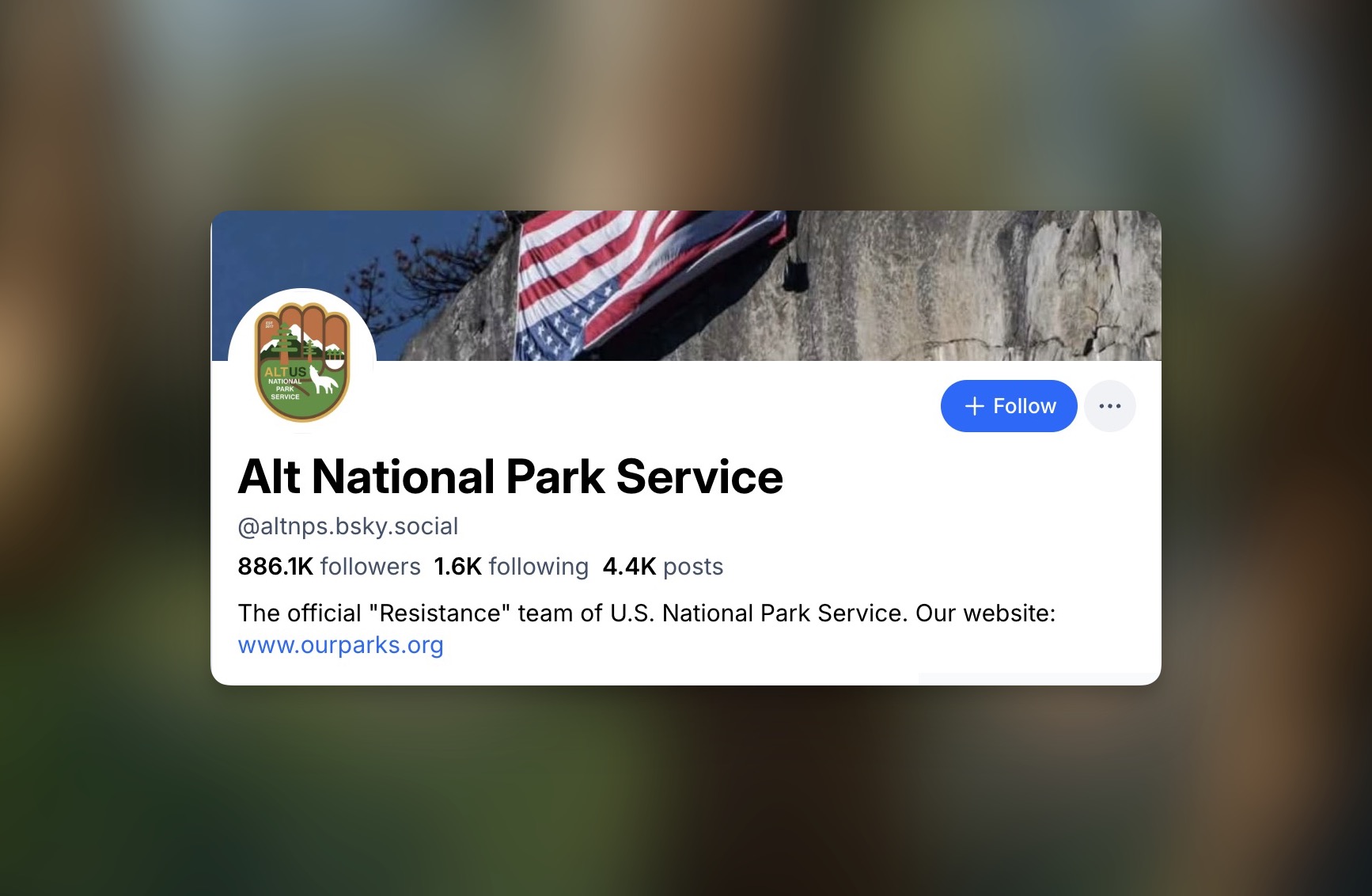Few companies have shaped travel and tourism as extensively as Airbnb. The platform has transformed the way people experience lodging, shifting millions of travelers from traditional hotels to a more personalized, localized, and more affordable alternative. In turn, the popularization of Airbnb has pushed the hotel industry to make changes in order to remain attractive. The downstream effects can be seen in tourism patterns, hospitality regulations, and the real estate market of mountain towns. Cities around the world continue to grapple with the paired economic benefits and social consequences of short-term rentals (STRs).
A few weeks ago, Airbnb CEO Brian Chesky announced a few major updates to the platform. Users can now book not only accommodations, but also experiences and a wide range of services. You can now find everything from cooking classes and photoshoots to spa treatments and private chefs on the app and website. It’s an ambitious shift toward becoming another “travel super app.”
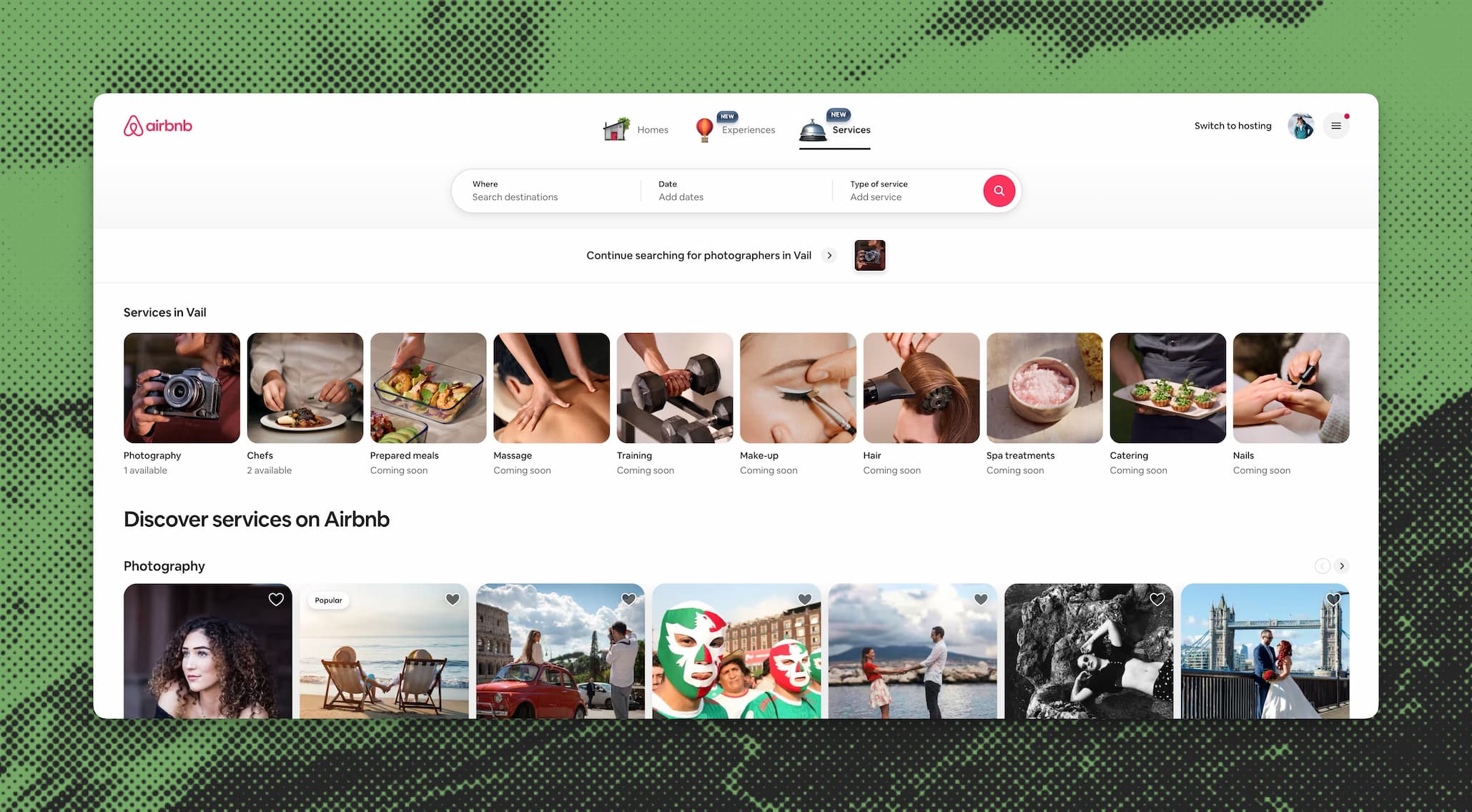
The question isn’t whether there’s an opportunity here. It’s whether Airbnb can actually make it work. Can it successfully pivot from “a place to find unique, convenient, and affordable short term rentals” to a “short term rental slash experiences marketplace slash local services directory that is kind-of travel adjacent, but not always”?
Experiences are back. Again.
Airbnb first launched “Experiences” in 2016, but despite two relaunches (2019 and 2023), the feature never really caught on at scale. Now, it’s back. Again. The “new” Experiences will apparently include stricter vetting and Airbnb has introduced “Originals” featuring artists and celebrities.
I’m not exactly sure what it hopes to do differently, nor have I seen anyone articulate the secret sauce that will change the dynamics at play this time around. Originals, which give me an Omaze/Cameo vibe, are a good marketing mechanism, but will never be a core driver of the platform at scale.
And while the global opportunity in experiences is large, it’s also incredibly fragmented, low-margin, and operationally messy. There are hundreds of thousands of small operators around the world with wildly inconsistent management systems and levels of quality. McKinsey sized the experiences market at $1 trillion last year but noted that margins are consistently an issue at scale.
A quick look at Experiences available in London highlights a core problem. I found a “Walking tour of London with 30+ sights” listed on Airbnb…then immediately located the same tour, from the same operator, on GetYourGuide and the tour companies website (using FareHarbor, a common backend booking software)
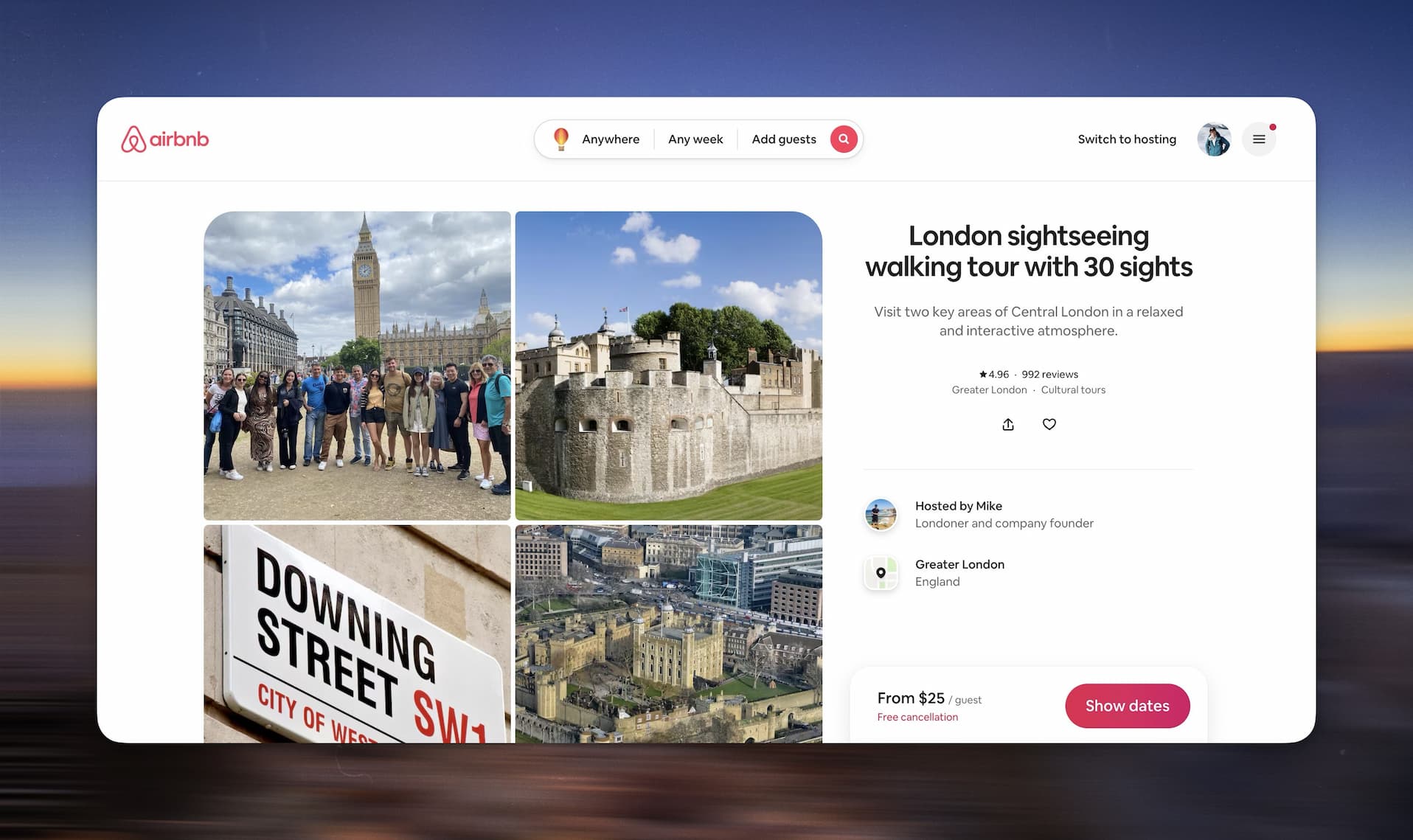
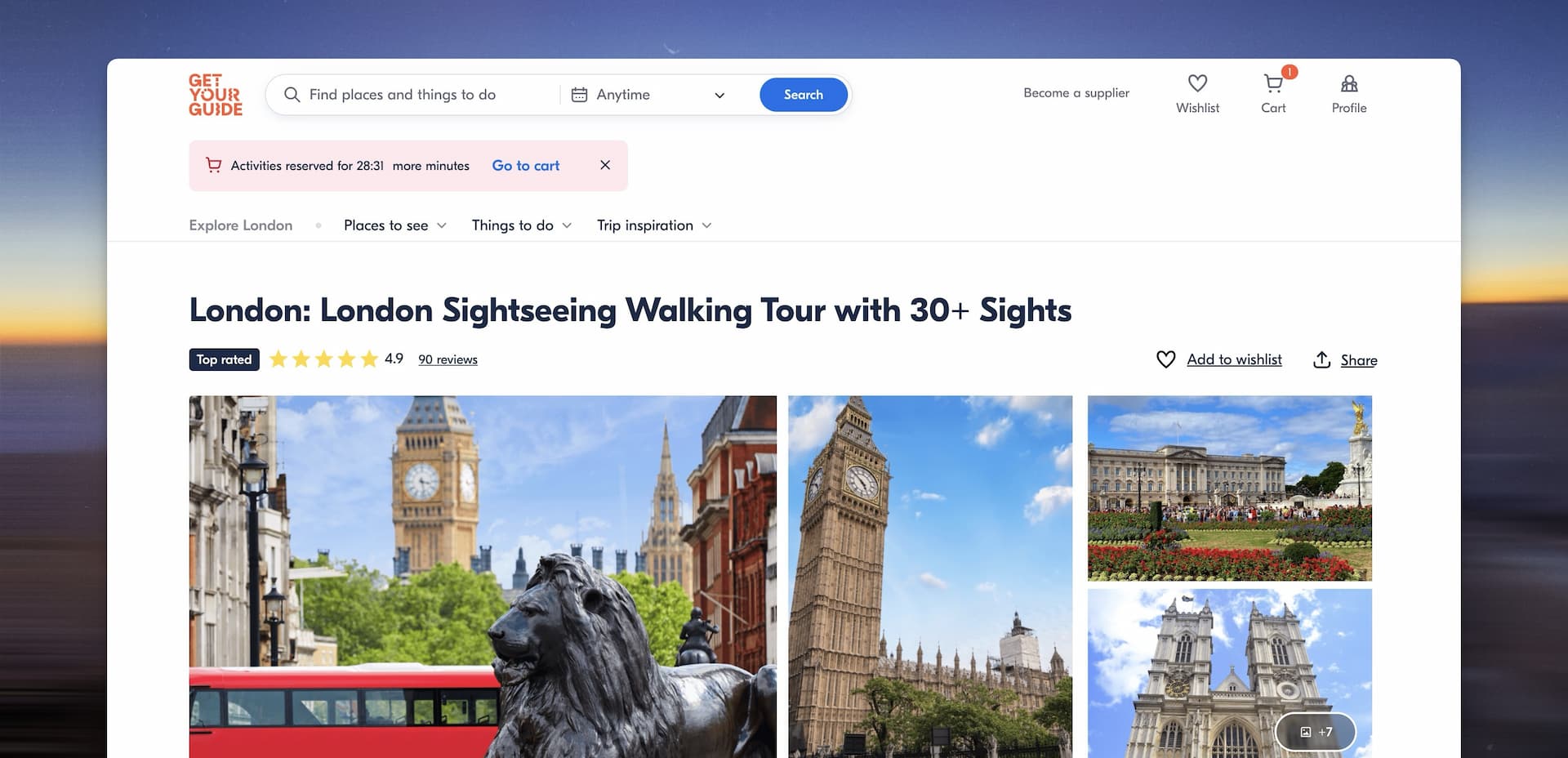
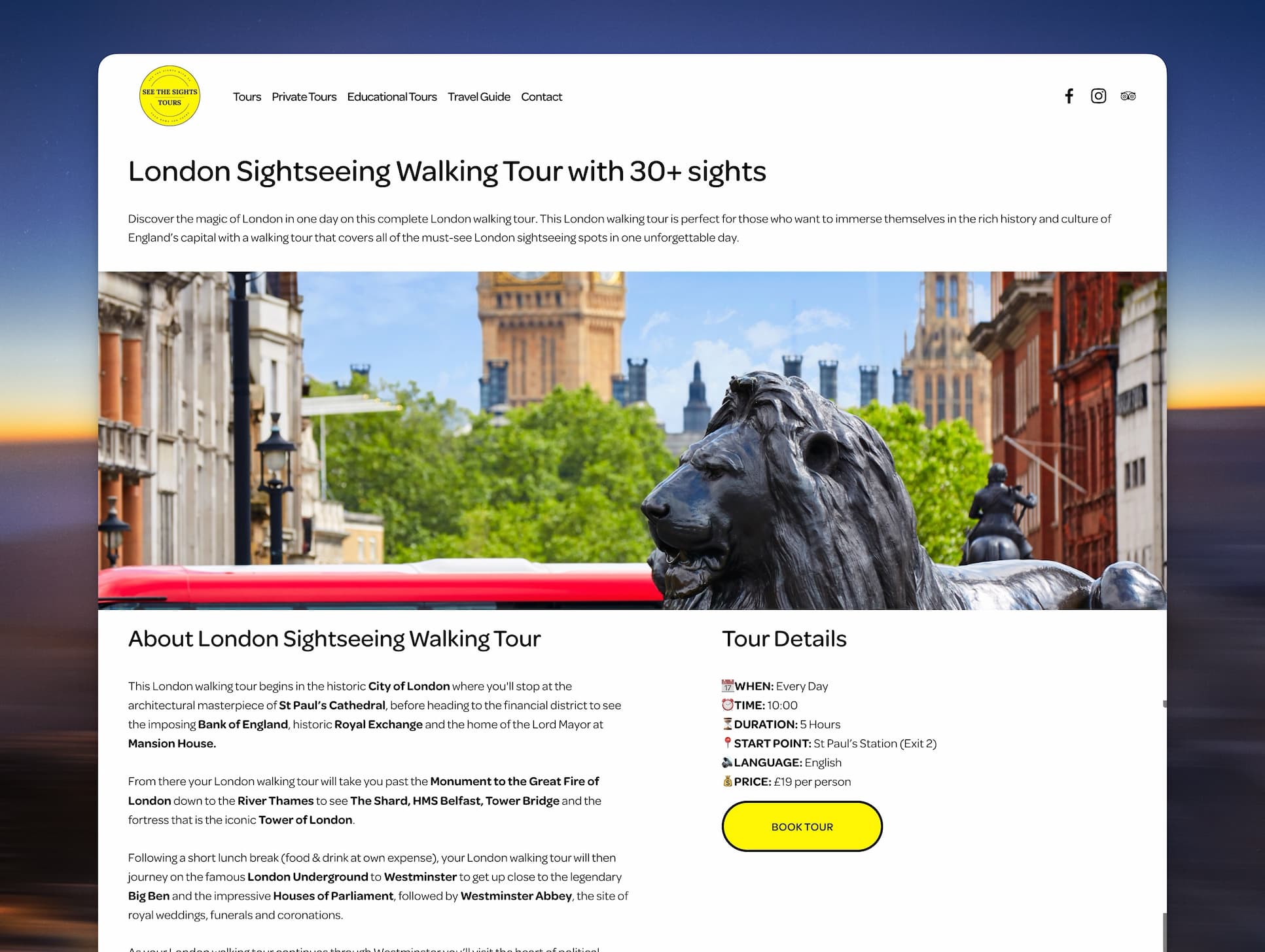
Airbnb is well positioned to capture add-on purchases from their customers who are already primed to book additional services alongside accommodations. This gives it a strong funnel for cross-selling and avoids some of the discovery hurdles that standalone platforms have to navigate. But, operators want to cast as wide a net as possible, and commonly used booking tools like FareHarbor or Easol all sync with distribution platforms like Klook, GetYourGuide, Peek Viator, and yes, Airbnb. It’s made the space a game of distribution arbitrage.
The Airbnb brand still seems attached to authenticity and uniqueness. But to grow this marketplace, it will need volume. And volume for experiences often means standardization and catering to the lowest common denominator, the kind of experience Airbnb’s branding (and Chesky’s public comments) suggest it’s trying to avoid. The reality is, there’s a much bigger market for the relatively affordable tourist-trap tours than the truly unique, off-the-beaten-path ones.
Service marketplaces are hard
I’m most skeptical about the addition of local services.Service marketplaces are notoriously hard to build and even harder to scale. I’ve worked on a few. At one, where we built a successful wedding vendor/venue marketplace, it was a challenge to effectively scale revenue and a nonstop SEO war to keep our listings ahead of Yelp, The Knot, and local directories.
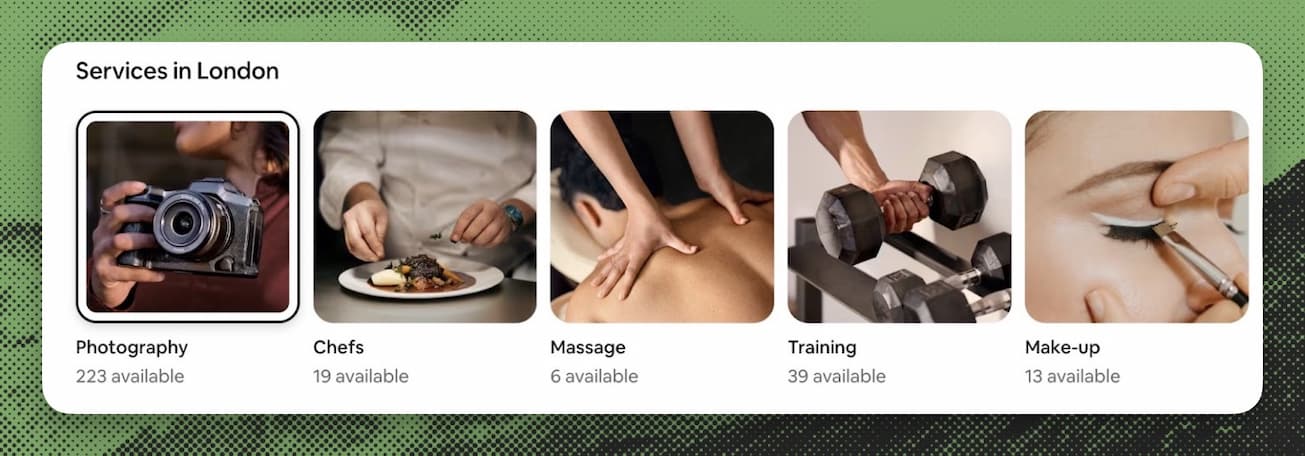
Airbnb touted a few thousand service providers at launch. While that might sound like traction, it’s laughably small at global scale. That doesn’t mean it can’t grow, but even in major travel destinations, the inventory feels weak. When you open the page and see just a handful of listings in each category, it’s… tremendously underwhelming. And despite the announcement focusing on providers coming to your Airbnb, many of the listings I saw still had a different physical location mentioned to access the services.
Competitors mostly fall into 2 buckets. Directories like Thumbtack focus on visibility and discovery, helping users find service providers through listings and reviews. Niche tools like Styleseat and Booksy typically have a back-office solution integrated with flexible integrations (like websites or search/directory features). To Airbnb’s credit, I see use-cases where these services make sense. There are natural add-ons to a short-term stay: booking a chef or catering for a birthday dinner, hiring a yoga instructor for a retreat, or getting a hairstylist while you’re in town for an event. These kinds of “bonus” transactions are most applicable to a segment of high-end travelers, or for event-based travel like weddings, bachelor parties, etc. The platform could become a useful supplementary discovery layer for in-destination services.
Ironically, these services make it look like Airbnb is trying to make up for what it lacks compared to hotels: fitness centers, spas, restaurants, room service, and a concierge.
What’s unclear is whether these high-spending travelers will be a large enough market to drive consistent business for most operators. Can a hairdresser or masseuse really do the volume on Airbnb that they need to survive as a business? More likely they’ll continue to do the majority of their business through direct local relationships, other platforms, and SEO, which cuts Airbnb out of a significant portion of revenue. Airbnb saw nearly half a billion nights booked in 2024, but that’s a fraction of total traveler nights, and 70% of travelers stayed in a hotel vs an STR. And that’s not even diving into the major tourist areas (and subsequently major experiences and services hubs) where Airbnb is being heavily regulated or banned outright.
While Airbnb might be an acquisition channel, it wouldn’t really make sense for most providers to truly tie their business to that ecosystem alone. Even if Airbnb can drive traffic to listings, most travelers aren’t looking to book a nail salon or private chef through their lodging app. These types of interactions are dominated by local knowledge, web searches, Google Maps, and increasingly, ChatGPT.That’s not to say some providers won’t find success through Airbnb. Just as some businesses have found success through Experiences over the years, there will be service providers who benefit from the visibility Airbnb can offer, or even derive most of their business from Airbnb. But, some successes do not necessarily make a defensible, scalable, profitable marketplace.
One app to rule them all
The overarching goal seems to be to turn Airbnb into a single, sticky interface for travel planning, attractions, and in-destination services. In theory, a single app that does all of this will keep users inside the Airbnb ecosystem longer and lead to boosted revenue by adding entirely new segments of booking fees at “low” cost to Airbnb.
While the super app vision sounds good in theory, the reality is often different. It’s one of those approaches that consumers always say they’re interested in, but never quite seems to work in execution, at least in the West. Some might point to the success of super apps like WeChat and Alipay in Asia, but I think these incumbents are unique outliers, their success shaped more by the dynamics of geopolitics and the timing of digital culture/tech growth in Asia, versus a worldwide consumer desire for “do everything” apps.
As a personal anecdote, I frequently use Booking in Europe (far easier, faster, and more consistent than Airbnb), but I wouldn’t touch Booking Flights with a ten-foot pole, and I’ve never used a single one of these other tabs.

Can Airbnb execute?
Success here isn’t just about adding these new features and having a big audience. Airbnb will need to build an experience that beats hotels, local search, and niche service platforms on convenience, quality, cost, and trust. And that’s where Airbnb’s has it tough. Despite a brand built on quality, uniqueness, and design, the reality of the average Airbnb experience today is often inconsistent, unpredictable, and increasingly on parity or more expensive than hotels. Adding a few thousand more independent operators doesn’t change that. And while Airbnb is well positioned to do it, changing consumer travel search behaviors is extremely difficult.
If the strategy works, Airbnb may redefine the travel ecosystem, again.

